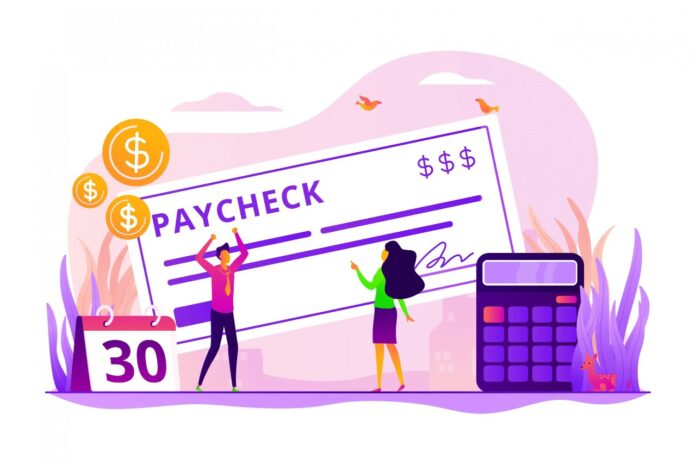Financial stress in the workplace can reduce employee productivity and morale. In addition, a lack of money can lead to employees taking on second jobs and losing company loyalty. An on-demand paycheck option called earned wage access (EWA) can help your employees better manage their finances.
What is EWA?
Whether it’s the Covid-19 pandemic or regular monthly expenses, saving money is a top stressor for employees. And since most salaries only come once a month, savings can be quickly eaten up by rent, bills, and other fixed costs. Fortunately, accessing a portion of wages on demand eliminates this financial worry and allows employees to establish a savings habit that works with their budget.
Employees can use an EWA app linked to their online banking to request an advance on a day or pay period before their next payday. The advance is based on actual earnings verified by the payroll service provider and doesn’t impact paycheck processing. Most reputable providers cap advances well below total wages and doesn’t charge any interest. While many apps advertise instant timely access, an advance can take up to two days to arrive in the bank. This inflexibility and varying fees can discourage employees from using this benefit. When choosing an EWA platform, choose one that’s compliant and encourages responsible use. Some available apps use an employer-based model that aligns with guidance from the Consumer Financial Protection Bureau (CFPB). Some companies offer similar services to consumers without employer integration, but these are not considered EWA and do not meet CFPB guidelines.
How does EWA work?
EWA is a powerful way to help employees make ends meet. Allowing them to access funds they have earned before their scheduled payday alleviates cash flow issues and can reduce employee stress. It also eliminates reliance on credit products and high-interest borrowing. Adding on-demand pay to an employer’s payroll platform is simple. The app makes all necessary payroll deductions and then automatically sends employees their available net wages. Because it’s a pay benefit, there is no impact on regular payroll processing, and no administrative changes are required for employers to implement.
While many different EWA apps are in the market, choosing one compliant and promoting responsible use is essential. Most have maximum request limits for new users to encourage responsible behavior. In contrast, others limit the number of times an employee can use the service in a given month or payroll period.
How does EWA benefit employees?
Aside from reducing the overall stress of living paycheck to paycheck, employees also benefit from the added peace of mind that comes with knowing they can cover an unexpected expense without going into debt. They can request and receive some of their wages beforehand if they don’t have the cash to pay for a car repair or medical bill.
Many EWA providers offer app-based programs that allow employees to access a percentage of their paychecks before their next regular payday. Employees can transfer the funds directly into their bank accounts or to a prepaid card. Once they have the money in their account, they can withdraw it whenever they want.
Introducing an on-demand pay policy in a tight job market can effectively attract and retain hourly workers. According to one study, a company that offers earned wage access sees employee retention increase by 36%.
However, it’s important for employers to carefully consider the impact of this type of program on their bottom line and to consult with a labor lawyer before implementing an EWA program. Many EWA apps charge membership and transaction fees, which can increase if employees use the app regularly. Additionally, many EWA apps have maximum request limits based on payroll information and may only transfer a limited amount per paycheck period.
How does EWA benefit employers?
In addition to employee satisfaction, which leads to higher performance and retention, EWA benefits employers by reducing costly turnover. It costs around a fifth of an employee’s yearly salary to replace them, so minimizing staff churn can save businesses significant money.
EWA programs typically require employees to download an app or use a dedicated pay card to gain on-demand access to their wages. They can then use this cash to meet financial obligations, cover unexpected expenses, or purchase essentials. This way, on-demand wage access is similar to payday advances but without the fees. It also gives employees a safety net in an emergency, such as a car repair or medical bill.
Employers should choose a cost-effective EWA provider that integrates seamlessly with existing payroll systems. Also, the program must comply with any federal or state wage laws. Finally, the company should be able to make all necessary payroll deductions before making funds available for withdrawal.
Despite being an emerging technology, research has shown that on-demand wage access can help alleviate the financial stress that many employees experience. Providing workers instant access to paychecks can reduce their time worrying about finances and increase productivity and engagement. The COVID-19 pandemic has made many people prioritize building up their financial safety nets, so it’s an excellent time for companies to consider offering this benefit to their employees.





